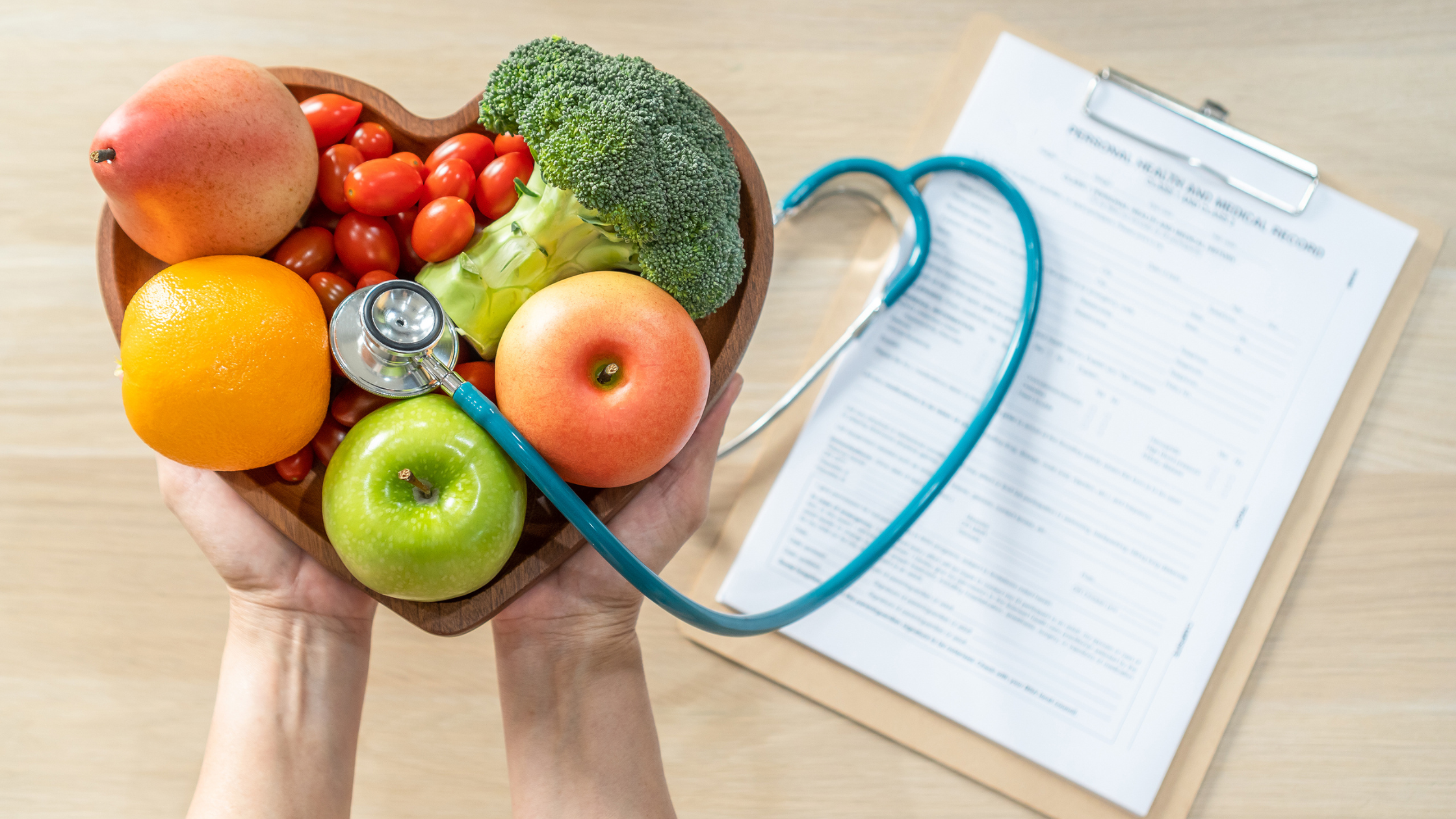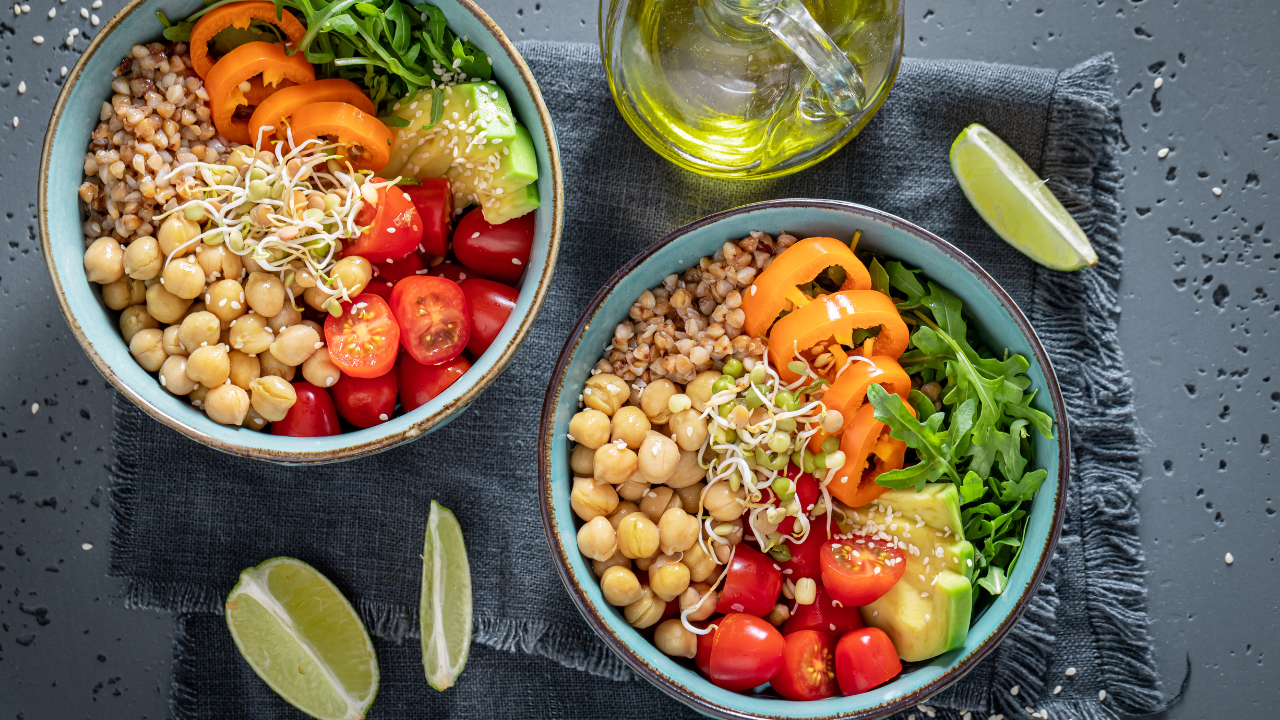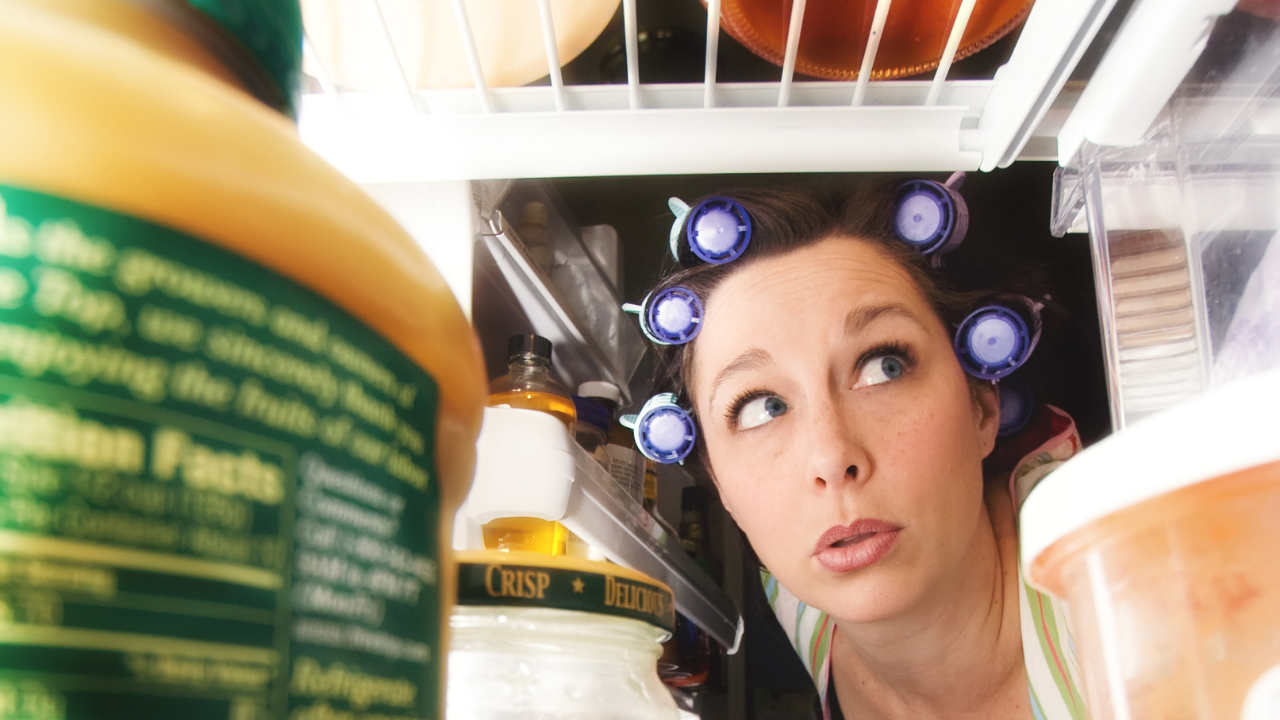Managing Your High Cholesterol with Intuitive Eating
If you have high cholesterol, you may have been told to follow a diet to treat this condition. Unfortunately, dieting only tends to make high cholesterol (and other health conditions) worse. So if dieting isn’t the solution to managing your high cholesterol, what is?
In this blog we will cover:
How is high cholesterol treated?
Why diets don’t work for managing health conditions
Do you need to eat a low cholesterol diet?
Will weight loss improve high cholesterol?
What is high cholesterol?
High cholesterol (aka hypercholesterolemia) is a condition where the total amount of cholesterol in your blood is elevated. While we need some cholesterol in our blood for cell function, too much can increase the risk of heart disease and stroke.
Cholesterol comes in two primary types: low-density lipoprotein (LDL) and high-density lipoprotein (HDL). LDL is commonly referred to as the “bad cholesterol” because it can contribute to the buildup in your arteries. HDL, referred to as the “good cholesterol”, helps the body get rid of excess cholesterol to prevent it from building up in your arteries.
High cholesterol is diagnosed by a blood test known as a lipid panel or lipid profile, which typically measures LDL and HDL cholesterol as well as total cholesterol and triglycerides (which are not a type of cholesterol).
Causes and risk factors of high cholesterol
There are various causes and risk factors of high cholesterol, including:
Genetics
Age
Sex assigned at birth
Diet
Amount of physical activity
Tobacco use
Alcohol consumption
How is high cholesterol treated?
When it comes to treating your high cholesterol, it is important to remember that there are nonmodifiable and modifiable risk factors. Nonmodifiable risk factors are factors that are our of your control. Even if you eat a balanced diet and have a consistent exercise routine, you can still have high cholesterol due to factors such as age, genetics, and your sex assigned at birth. In this case, your doctor may prescribe medications.
Modifiable risk factors are ones that you do have more control over. Modifiable risk factors include your diet, physical activity levels, alcohol consumption, and stress levels. Note that these do not involve dieting or trying to shrink your body.
Why diets don’t work for treating high cholesterol
One approach that I do not recommend for treating your high cholesterol is going on a diet. And unfortunately, this is what many are encouraged to do. But this approach has many disadvantages.
You might assume that because weight loss advice is so frequently dished out that it would mean that dieting is an effective approach. Yet upwards of 97% of people who lose weight through dieting regain the weight they lost within two to five years. Not only that, but one- to two-thirds of people who diet regain more weight than they originally lost, ending up at a higher weight than where they started.
Simply put, diets don’t work, including for people diagnosed with high cholesterol. If you have tried treating your high cholesterol by going on a diet and it did not work for you, do not blame yourself. You are not the problem. Weight loss programs have an astronomically high failure rate, yet we continue to blame the struggle to “stick with it” on lack of motivation or willpower.
Do you need to eat a low cholesterol diet to treat high cholesterol?
The amount of dietary cholesterol that you consume (aka cholesterol from food) typically has little impact on your blood cholesterol levels. You also do not get high cholesterol from eating too much cholesterol in food.
Will weight loss improve high cholesterol?
Telling someone with high cholesterol to “just lose weight” is, frankly, terrible advice. Unfortunately, this is what many people with high cholesterol (especially those in larger bodies) are told to do when they are diagnosed. As previously mentioned, dieting attempts (weight loss attempts) fail up to 97% of the time, whether you have high cholesterol or not.
People in all sized bodies can have high cholesterol levels. It is important that people with larger bodies receive the same care and treatment as those in smaller bodies. Because believe it or not, there are not any health conditions that only happen to those in larger bodies. I recommend reading this post to learn more.
Now, some individuals may lose weight when treating their high cholesterol and making nutrition and exercise changes. This does not automatically mean that weight loss is what improved their symptoms - the behavior changes did!
This also does not mean that they did anything wrong by losing weight. They were likely just above their set point weight when they started making behavior changes. That said, weight loss as a sole treatment for high cholesterol is often ineffective and not every person with high cholesterol will lose weight as they treat their symptoms.
What is intuitive eating?
Intuitive eating is a non-diet approach to eating that was developed by two registered dietitians, Evelyn Tribole and Elyse Resch. There are 10 principles of intuitive eating with a goal of helping you improve your relationship with food and your body.
Reject the diet mentality
Honor your hunger
Make peace with food
Challenge the food police
Discover the satisfaction factor
Feel your fullness
Cope with your emotions with kindness
Respect your body
Movement - feel the difference
Honor your health - gentle nutrition
New to intuitive eating and want to learn more? Check out this blog post for a full beginner’s guide. I also made a complication of all of my favorite intuitive eating and anti-diet books here to help you get started.
How to manage high cholesterol with intuitive eating
Intuitive eating is the way to manage your high cholesterol without dieting and cutting out your favorite foods. Intuitive eating involves learning to listen to your body rather than relying on food rules to dictate your food choice. There are ten total principles of intuitive eating and I recommend reading this post to learn more about how intuitive eating can be used to treat chronic conditions.
The principle I want to focus on for high cholesterol treatment is the principle of gentle nutrition. Gentle nutrition is essentially the intersection between fueling your body with the nutrients it needs while also eating foods that you want and enjoy.
Here are a few ways to incorporate gentle nutrition to lower your cholesterol:
Choose mainly unsaturated fats
Saturated fat is one of the biggest dietary contributors that may raise LDL cholesterol levels. Limiting saturated fat intake can help to lower LDL cholesterol levels. Saturated fats are often found in animal-based protein sources, such as fatty meats, high fat milk and cheese, ice cream, and butter.
As a non-diet dietitian, I often recommend considering what you can add to your plate rather than taking foods away. When it comes to treating your high cholesterol, you can try increasing your intake of unsaturated fats. This does not mean that you should avoid saturated fats all together! You can absolutely enjoy foods with saturated fat in them. Because the fact of the matter is when we cut foods out of our life, it generally only makes us want to eat them more. Food restriction is one of the main indicators of binge-type eating.
Polyunsaturated and monounsaturated fats may help lower blood cholesterol levels. Unsaturated fats can be found in fatty fish, nuts, seeds, and liquid oils such as olive oil, avocado oil, and canola oil.
Choose mainly lean protein sources such as poultry without skin, lean cuts of beef and pork, seafood, and plant-based proteins such as beans, lentils, and quinoa. Plant-based protein foods often contain fiber as well, which is great for lowering LDL cholesterol.
Increase soluble fiber intake
Soluble fiber can help to lower LDL cholesterol levels. Sometimes referred to as viscous fiber, soluble fiber absorbs water in the stomach to form a thick, jelly-like mass that moves through the intestines and “grabs” cholesterol to be excreted.
Fiber is only found in plant-based foods. Animal products like meat, dairy, and eggs do not contain fiber. Foods that are high in soluble fiber include asparagus, oranges, legumes, oats, sweet potatoes, and brussels sprouts. Increase your fiber intake slowly and be sure to drink plenty of water to prevent constipation.
Related post: Are You Eating Enough Fiber?
Limit alcohol consumption
High levels of alcohol intake may lead to increased cholesterol levels due to how it is processed in the liver. Check out this post to learn more about how alcohol may (or may not) be a part of your intuitive eating journey.
Increase joyful movement
It’s likely no surprise to hear that exercise is good for you. However, more is not always better. Joyful movement is the key here. There is no place for using exercise as punishment or as a way to “make up” for what you ate the day before.
How can a dietitian help with treating high cholesterol?
Registered dietitians can help you to lower your cholesterol levels by providing guidance and support on managing the modifiable risk factors. You can work with me by joining my signature program to learn more able implementing gentle nutrition to improve your health without dieting.
Bottom line - can you lower your cholesterol with intuitive eating?
Yes, you may be able to lower your cholesterol with intuitive eating. Intuitive eating might look different for those with high cholesterol - this does not mean that it is not possible.
Learn more
Featured podcast episode
Featured video
Want more help on your intuitive eating journey?
Join my signature membership to become part of a community of ex-dieters working towards food freedom and making peace with food so they no longer need to cut out their favorite foods.
































